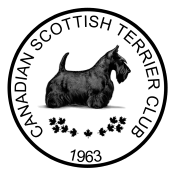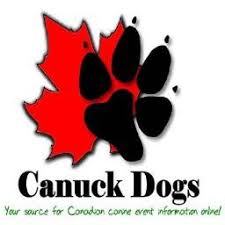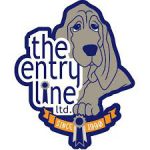EDITORS NOTE: THE FOLLOWING IS FOR YOUR INFORMATION ONLY, YOUR VETERINARIAN SHOULD BE CONSULTED BEFORE ATTEMPTING ANY HOME CURES !! INEXPERIENCED PET OWNERS SHOULD NEVER SELF MEDICATE.
INAPPROPRIATE TREATMENT CAN MAKE MATTERS WORSE!!
SOURCE: VET. HANDOUT
Aspirin: helps reduce fever and relieve muscle and joint pain. Give with food, as it may upset the stomach.
DOGS: 0.1 to 2.0 gm. every 12 hours.
Bismuth or Pepto-Bismol: coats the stomach and is useful for the control of vomiting and diarrhea. Give frequently.
DOGS: 1 tsp. per 20 lbs of dog every 4 hours.
Brewer’s Yeast: a source of multiple B vitamins. It has an appealing flavor for dogs.
DOGS: 0.1 gm. per lb of dog once daily.
Charcoal: absorbs toxic materials and thus prevents their absorption into the body. It is also an antiflatulence (gas) product. A very safe drug.
DOGS: 2 heaping Tbs.. in 4 ounces of water per 30 lbs of dog once, or 6 tablets per 30 lbs of dog.
Cod-liver oil: a source of vitamin A and D. Do not give large doses or administer for long periods of time.
DOGS: 1 tsp. per 20 lbs of dog once daily.
Cough medicine: an expectorant mixture for short-term use in respiratory infections or coughing.
DOGS: Guaifinesin, 1/2 to 1 tsp. every 4 hours.
Hydrogen peroxide: a safe medication given by mouth to induce vomiting. Usually acts within 5 to 10 minutes.
DOGS: 3% solution, 1 to 2 tsp. every 15 minutes until vomiting occurs.
Kaolin-pectin solution: (Kaopectate) a coating and binding material for use in diarrhea and certain poisonings. Give often and in full dosage, as it is very safe and underdosage decreases its value.
DOGS: 1 tsp. per 5 lbs of dog every 2 to 6 hours.
Meclizine: (Bonine) useful for motion sickness. Lasts 12 hours. It either works very well or is ineffective on an individual basis. Give 1 hour before traveling. Do not feed before or during the trip.
D-L methionine: (Pedameth) a natural food substance that increases acidity of the urine. It is often used in urinary infections.
DOGS: 0.2 to 1.0 gm. every 8 hours.
Milk of magnesia: an antacid and laxative. It is used for constipation, as an antacid, and to flush toxic materials from the intestinal tract by cathartic action.
DOGS:1 tsp. per 5 lbs of dog, up to a maximum of 8 tsp., once
Mineral oil: a lubricating material that is not digested or absorbed. It is a lubricant and laxative when given by mouth. It is best given with food because its tasteless. If it is not given with food, it may run into the trachea and cause a lung reaction.
DOGS: 1 tsp. per 5 lbs. Single maximum dose 10 tsp. May be repeated in 12 hours
Paregoric: an opium derivative that allays stomach cramps and diarrhea. Often combined with bismuth or kaolin-pectin mixture.
DOGS: 1/2 tsp. per 10 lbs. every 6 hours. Single maximum dose 1 tsp.
Sodium bicarbonate: an antacid to neutralize acid in the stomach or alkalinize the urine.
DOGS: 25 mg. per lb. of dog every 8 hours.
Sodium dioctyl sulfosuccinate: (Colace) a stool-softener that causes water to penetrate hard stool.
DOGS: 100 to 300 mg. every 12 hours.
Vitamin C: used to acidify the urine in treatment of urinary infections.
DOGS: 100 to 500 mg. every 12 hours.
TOPICAL APPLICATIONS
Aluminum acetate solution: (Domeboro solution) a drying, astringent solution for insect bites and moist irritated skin lesions.
DOGS: Add 1 packet or tablet to 1 cup tepid water and soak skin for 15 minutes 3 times daily.
Antibacterial ointments:
For the skin: (Neopolycin, Neosporin, Betadine ointment, (betadine solution) Neopolycin and Neosporin are antibiotic combinations for skin diseases, abcess, or wounds. Betadine ointment is a bland ointment for similar uses. Betadine solution is an iodined liquid for cleansing skin and wounds.
DOGS: for the skin, apply gently to affected areas 2 or 3 times daily.
For the eyes: (Neopolycin, Neosporin) Available by prescription for eye infections.
DOGS: for the eyes, By prescription only. Apply to surface of eyeball 4 times daily.
A and D ointment: a bland ointment containing vitamins A and D. Stimulates the healing of wounds and is soothing to irritated skin.
DOGS: Apply gently to irritated skin or minor wounds to stimulate healing.
BFI powder: an antiseptic and drying wound powder for minor cuts, scratches, and irritations.
DOGS: Apply to irritated areas of skin daily.
Chlorine solution: (Clorox bleach) a solution used for irrigating infected wounds or for application to bacterial (i.e. impetigo) or fungal (ringworm) diseases of the skin.
DOGS: 1/2 tsp. to 1 cup water. soak affected skin for 15 minutes 3 times daily.
Limesulfer solution: (Vlem-Dome) used for several types of mange, ringworm, and infections, and when itching is prominent.
DOGS: 1 tsp. concentrate to 1 pint hot water. Soak affected skin once daily. Allow to dry without rinsing.
Nivea Creme: a mild skin creme to soften hard, dry skin and add moisture. It is soothing and lubricating.
DOGS: Apply to dry or crusted skin 3 times daily.
Shampoo, Johnson’s Baby: a bland cleansing shampoo. Rinse well.
DOGS: Use as bland shampoo for ordinary cleansing. Rinse well and dry the coat.
Sodium bicarbonate solution: a neutralizing rinse for acid burns.
DOGS: 1 Tbs.. to 1 cup water. Flush skin burns from acids> Rinse.
Vinegar: a neutralizing rinse for alkali burns.
DOGS: Flush full strength on skin burns from lye or alkalies. Rinse.
RECTAL APPLICATION
Fleet enema: a prepackaged saline enema solution. Indicated in minor constipation.
DOGS: Inject 1 to 4 ounces into the rectum, using the special nozzle-tipped plastic bottle.
Views: 1579





